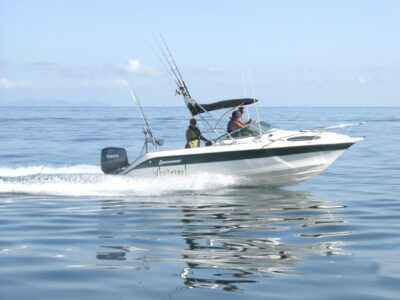
Sharyn Forsyth, Maritime NZ deputy director and chair of the Safer Boating Forum, says while 55 per cent of boaties admit friends and family influence how they go boating, they’re not necessarily having conversations about what’s safe while on the water.
“Being a responsible skipper is hugely important to ensure all on board enjoy their time out and get home safe. And while opening up the throttle or downing a six pack may be seen as having a good time it is likely making your passengers uncomfortable,” Forsyth says.
“The survey identified that while family and friends are the people we love and are the closest to, we’re not necessarily putting them front-of-mind when it comes to boating safety.
“The survey shows that passengers rate their skipper’s skills higher than the skippers do themselves, indicating that conversations about how to handle the boat safely might not be happening as often as they could. With plenty of first-time skippers coming through, this is a dangerous mix which adds to the risk of something going wrong.”
New Zealanders are heading out on the water in record numbers, with latest estimates putting the number of recreational boaties at just over two million, or 52 per cent of New Zealand’s population.
“This is a 7 per cent increase in the past four years and, as reinforced in previous surveys, kayaks continue to rise in numbers as the number one recreational boating vessel in the country.
“One concerning aspect of the research is that more kayakers rate their boating skills as novice compared to other vessel types, which is why Maritime NZ is supporting more work with the kayak and stand-up paddleboard sector.”
Funded by Maritime NZ, Meet The Paddlers is a travelling roadshow run by Kiwi Association of Sea Kayakers (KASK) to promote kayak safety advice and training.
Another funded campaign targeted at stand up paddle boarders SUP Safe is run by New Zealand Stand Up Paddling Inc to increase knowledge around lifejackets, communications equipment and paddling in unfamiliar locations.
“Regardless of the vessel or person, to improve your chances of survival should things go wrong, always wear your lifejacket, take two waterproof ways to call for help, check the marine weather forecast, avoid alcohol and be a responsible skipper,” says Forsyth.
Visit www.saferboating.org.nz for more information on how to stay safe while out on the water.








